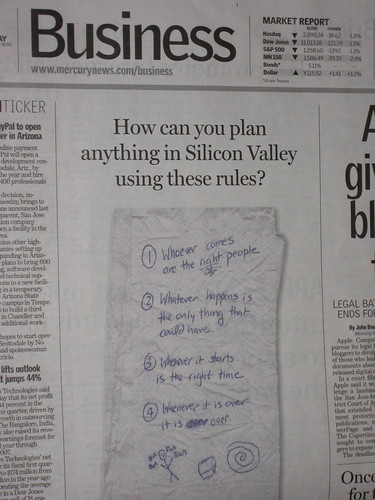Do you long for wide open spaces? Want to get some real work done?
Forget meetings. Throw out the agendas prepared in lengthy meetings that are never followed. Scrap the PowerPoints and flowcharts and make your next meeting an “un-meeting” with open space technology.
That’s the advice of Harrison Owen, the originator of “open space technology” and the author of Open Space Technology: A User’s Guide (Berrett-Koehler Publishers, 3rd Edition, Spring 2008).
Owen, along with 85 other “brave” souls, originated the open space concept back in 1985 at the Third Annual International Symposium on Organization Transformation, held in Monterey, Calif. When participants arrived at the event, the only things they knew were when it would start, when it would end and what the general theme of the conference might be. There was no agenda and no planning committee, and the only facilitator in evidence disappeared after several hours.
The 85 participants sat in a circle. As each person determined that he had some area of exploration he would like to pursue, he wrote a brief description on a small placard, announced his topic to the group, posted the placard on the wall and sat down. When no further topics were posted, the original proposers determined the time and place for meeting, and anybody interested in a particular topic signed up. That was it. Two-and-a-half hours later, an agenda for a three-day event had been completely planned, including multiple workshops — all with conveners, times, places and participants.
The result? Excellence, profound accomplishment, and breakthrough learning, according to Owen and thousands of others, who have been facilitating open space gatherings at conferences and within organizations for 23 years. To date, Open Space has been used in excess of 100,000 times in 134 countries.
The actual process has changed little, if at all, over the years. However the necessary “start-up” time has fallen to somewhere between and hour and an hour and a half, even with groups of 2000 and more.
Training Executive Exchange recently spoke to him about how open space can be put to work by trainers and managers within their own organizations – either as an alternative to meetings or as an alternative to training itself… Read More (from the OSLIST)



